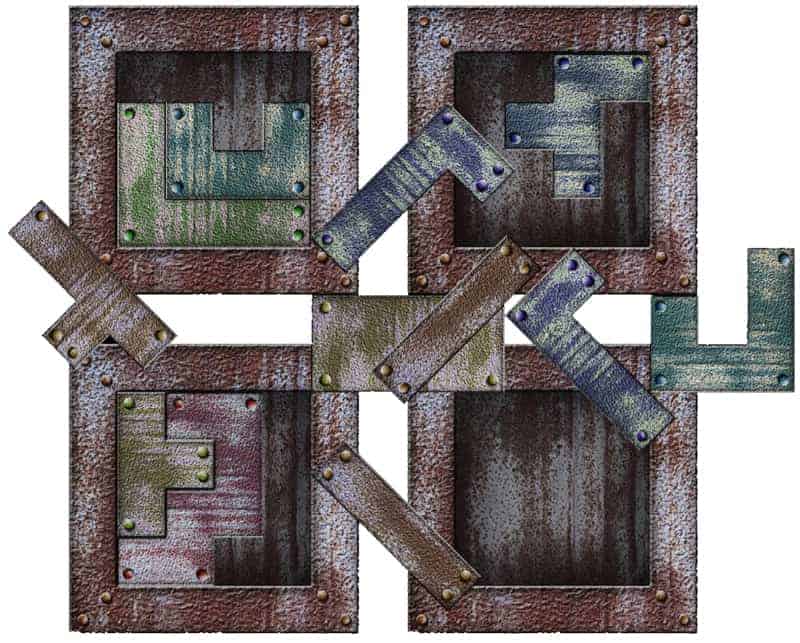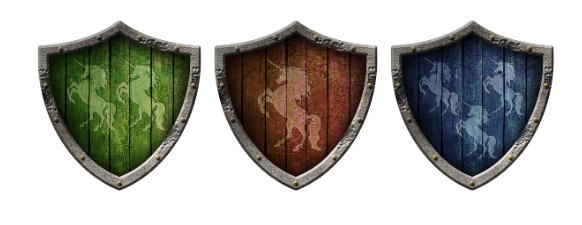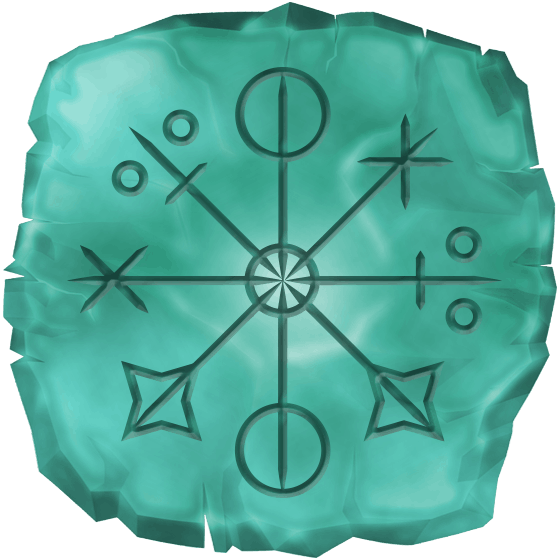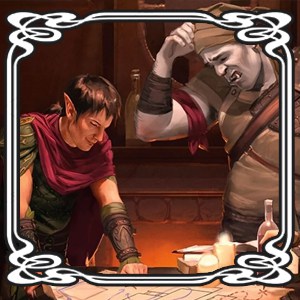I used to believe handing out XP for solving puzzles in D&D was easy. I would just hand out XP for solving a puzzle that was equal to an encounter of medium difficulty. Seems fair, right?
But then a player challenged my thinking by asking: ‘Why are we receiving more XP for solving a puzzle as high level D&D players than we did at low level?” I’ll be honest with you. I did not have an answer. Which – having served up hundreds of puzzles to my players over the years – was kind of embarrassing. Had I been handing out XP for puzzles wrong?
I started doing some researched and boy was I surprised at the many different ways DMs hand out XP (or exp) for puzzles! And they had some good arguments for each method. In this article, we’ll look at the many different methods you can use to hand out experience points for puzzles and the arguments that support those methods. I will not be picking a ‘best method’ for puzzle XP. Since there’s no official ruling on handing out XP for puzzles to my knowledge, feel free to pick whichever method suits your game best.
1. Giving no XP for Solving D&D Puzzles
The first method might come as a bit of a surprise for some. It is to not hand out any XP for solving puzzles at all.
The argument here is that characters aren’t in any danger and aren’t using any of their skills. The DM is challenging the players and not their characters. And if the characters aren’t using any of their skills or abilities, then why should they gain any experience points (XP) for solving a puzzle?
There is a counterargument to be made here. Good puzzles challenges – like all types of challenges in D&D – are both challenging to the players AND their characters. You can easily use intelligence checks to see if a character gets a hint to solving the puzzle. I usually give out a number of checks equal to the PC’s intelligence modifier.
For instance, my lock puzzles use multiple puzzle pieces that need to be placed in the correct slot to solve the puzzle. The puzzles become progressively more difficult as the number of slots increases. A hint could be to tell a player where they’ve placed a puzzle piece in the wrong slot.

Still, if you are just using puzzles without challenging the characters, you could skip handing out XP for puzzles altogether and just use it as a fun intermezzo.
2. Giving XP for solving D&D Puzzles as a Part of Milestone Leveling
With the introduction of milestone leveling handing out XP became a whole lot easier. You simply hand out XP at certain points in the story. And the XP players get for a puzzle is part of the journey they undertook to get to the next milestone.
It’s clean and simple and you bypass the whole question of why high level characters get more XP for solving a puzzle than low level characters. For some players, it may be a bit too simple though. And if you do wish to get a bit more granular, there are other methods to explore.
3. Giving XP for solving D&D Puzzles equal to a Combat Challenge

This used to be my method of choice (before my players voted for method 4). I would just see if a puzzle was easy, medium, or difficult. Then, I’d calculate the experience points gained for a combat encounter with the same difficulty. My third step would be to hand out half the XP if the puzzle involved no danger to the players, and full XP if the puzzle involved a danger like a trap or monster summoning circle.
But that does leave us with the question of why players are receiving more XP at higher levels. For puzzles that include dangers, it makes sense. Higher level puzzles in D&D involve bigger dangers and should be rewarded with more XP.
But for puzzles that involve no dangers, just intelligence checks, handing out XP makes less sense. Still, giving out half the XP I would award for a combat challenge of equal difficulty is a nice reward that isn’t game-breaking. After all, I hand out XP for great role play and that doesn’t scale either. It’s the type of experience points that is a small bonus, but it doesn’t make up the lion’s share of what characters do to level up.
Also, from a perspective of leveling your players up gradually, having big timeslots where players aren’t earning any XP doesn’t really work. It would mean that players who spend half the gaming sessions on puzzles, would only level up at half the speed. That doesn’t work from a practical perspective. So if you’re not too averse to handing out smaller amounts of XP for puzzles, this method could work for you.
4. Giving XP for solving D&D Puzzles from the D&D Adventurers League

We’ve discussed a couple of options, but is there no official ruling on handing out XP for puzzles in D&D? The closest I could find is an old ruling from the D&D adventurers league. I say ‘old’ because as of season 8 XP is no longer awarded in this way in DDAL play. But the old ruling could still offer some inspiration.
The D&D Adventurer’s League Primer for Tomb of Annihilation contains this guidance on giving out Non-combat XP such as puzzles. It states that DMs may award XP for non-combat encounters once for every two hours of play. These experience points can’t exceed the amount determined by the character’s tier. The awards are issued individually. So the character that deserves the award receives the entire amount.
| Tier | PC level range | XP Award |
| 1 2 3 4 | 1 -4 5 -10 11 – 16 17 – 20 | 50 250 1,000 2,500 |
4. Giving negative XP for D&D Puzzles
The last method is one that’s a bit controversial and I recommend you talk to your players about whether or not to implement it. With this method, players start off with a maximum XP amount for a puzzle.
So let’s say players start out with 500 exp for solving the puzzle without any hints:
- For every five minutes of play, they lose 100 XP.
- For every hint they lose 50 XP.
If there is no XP left, you narrate how the characters still solve the puzzle, albeit very slowly, and there can be some in game negative consequences.
The benefit of this method is that it avoids players getting stuck on a puzzle. And starting with more XP on higher levels represents how the characters have become more experienced at adventuring under pressure. After all, while the players get more time, you can still roleplay that their characters solved the puzzle in minutes.
And losing XP as time ticks away really adds to the excitement of stress of solving the puzzle. It’s a fun method of raising the stakes and making XP for puzzles a little more invigorating in your D&D game.
What Puzzles to Use?

By Paul Camp
Banner image credit: WotC


